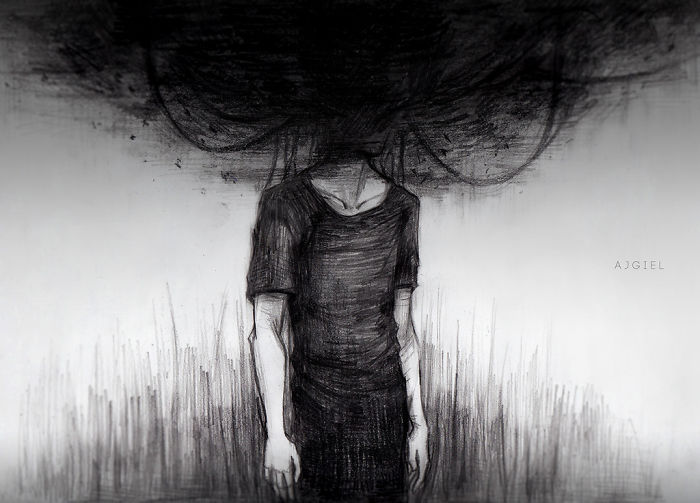Depression In College Students Can Be More Than Stress
It’s difficulty getting out of bed in the morning and making it to class on time. It’s not being able to sleep at night because your thoughts are so overwhelming. It’s having your mind wander to far off places during an exam. And it’s something that can control your daily life. Depression manifests it’s self in many ways and is something that college students fall victim to due to the stress that comes with academia.
Depression is the most common health problem for college students, according to the National Institute of Mental Health (NIMH). Around 17 percent to 23 percent of all students experience depression during their time at a university.
“It’s very common among young adults and college students,” stated Dr. Carolyn Cullen, a licensed psychotherapist and Assistant Professor of Mental Health Counseling at Mercy College.
Depression is a medical illness with many symptoms including physical ones. The most common symptom associated with depression is the feeling of sadness, but according to the NIMH, some people may never feel sad.
Other common signs of depression include: persistent sad or anxious mood, feelings of pessimism, loss of interest or pleasure in hobbies, decreased energy and fatigue, difficulty sleeping or over sleeping, unwanted weight changes, thoughts of death/suicide, and muscle pain or headaches. Not everyone who’s depressed experiences every symptom.
There are different types of depressive disorders such as major depression, where someone’s mood is extremely different from what it usually is, persistent depressive disorder which is a chronic and low-grade feeling, and psychotic depression which is the most severe and may be accompanied by delusions.
There are many things associated with college that can trigger symptoms of depression. Being overwhelmed with a heavy course load, being away from home for the first time and difficult relationships are all factors that contribute to depression.
“Stress increases during [midterms and finals] and can cause little issues that a student hasn’t previously addressed to turn into a full-blown crisis,” stated Alyssa Prete, part of Mercy College’s counseling staff. “It’s important to seek counseling as soon as possible.”
“Good stress motivates you to get your work done on time,” she stated. “While bad stress interferes with everyday life.”
In 2016, a record high of 11.9 percent of the students surveyed by the U.C.L.A Higher Education Research Institute have reported “frequently” feeling depressed in the past year.
Also in the same survey and for the first time in the survey’s history, less than half of the students considered their mental health to be above average relative to their peers.
A break-up, tough course load or family problems such as divorce are all considered psychosocial stressors that young adults are affected by, according to Dr. Carolyn Cullen, licensed psychotherapist and Assistant Professor of Mental Health Counseling at Mercy College.
“We know that the second leading cause of death in college students is suicide,” said Cullen.
She also touched upon the distortion that comes with getting help.
“There’s a lot of stigma around getting help but it’s very treatable,” she said. “For young adults, it’s crucial to get help now because it can potentially be life changing.”
If someone has been feeling sad, hopeless or irritable for at least two weeks, that person may have depression according to the NIMH.
Cullen agreed with that analysis but stated, “It needs to be addressed when someone’s routine is disrupted. It doesn’t necessarily have to be two weeks.”
The most common treatment for depression is psychotherapy and in some cases a combination with medication.
Nearly 25 percent of college students reported they were taking psychotropic mediation, according to the Anxiety and Depression Association of America (ADAA). And from the same survey conducted by U.C.L.A., about 14 percent of students surveyed said “there was a very good chance they would seek personal counseling in college.”
The Center for Collegiate Mental Health at Pennsylvania State University found that the number of students who have purposely injured themselves rose steadily to almost 26 percent in the 2015-16 school year. In the same study, those who attempted suicide rose from 24 percent to 33 percent in the same year.
“It’s an illness but it is psychological so people don’t often pay that much attention to it,” said Cullen. “But it is a common experience and there is hope.”
While depression may be caused by many factors, treatment for college students is obtainable as most campuses offer counseling services.
“I always stress to students that they have to make time [to take care of themselves]. I make it a homework assignment, something that needs to go into their calendar or planner,” said Prete.
Aside from counseling and medication, some other ways that can help reduce the symptoms of depression are daily exercise, making sure one gets enough sleep, breaking up large tasks into small, more obtainable ones and trying fun and expressive activities.
The Mercy College Counseling Center provides individual and short term counseling for students on the Dobbs Ferry, Manhattan and Bronx campuses. To make an appointment or for general inquires they can be reached at: (914)888-5150.
A 24/7 national Crisis Text Line is offered by texting START to 741-741 and the National Suicide Prevention Lifeline is also available free of charge 24/7 at (800) 273-TALK (8255).

Olivia Meier, most commonly referred to as Liv, is a journalism student at Mercy College. And while she loves New York, she is a true Jersey girl. If she’s...








